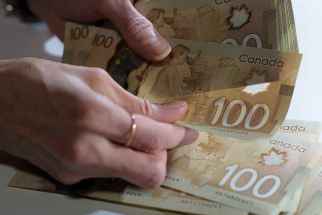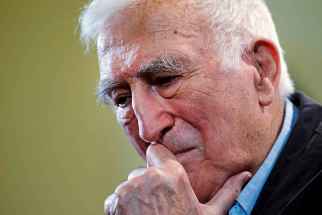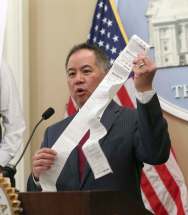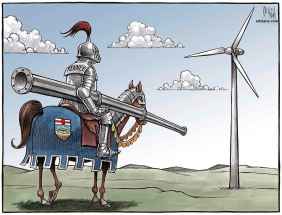Lack of e-commerce taxation structure costing Canada
Read this article for free:
or
Already have an account? Log in here »
To continue reading, please subscribe:
Monthly Digital Subscription
$0 for the first 4 weeks*
- Enjoy unlimited reading on winnipegfreepress.com
- Read the E-Edition, our digital replica newspaper
- Access News Break, our award-winning app
- Play interactive puzzles
*No charge for 4 weeks then price increases to the regular rate of $19.00 plus GST every four weeks. Offer available to new and qualified returning subscribers only. Cancel any time.
Monthly Digital Subscription
$4.75/week*
- Enjoy unlimited reading on winnipegfreepress.com
- Read the E-Edition, our digital replica newspaper
- Access News Break, our award-winning app
- Play interactive puzzles
*Billed as $19 plus GST every four weeks. Cancel any time.
To continue reading, please subscribe:
Add Free Press access to your Brandon Sun subscription for only an additional
$1 for the first 4 weeks*
*Your next subscription payment will increase by $1.00 and you will be charged $16.99 plus GST for four weeks. After four weeks, your payment will increase to $23.99 plus GST every four weeks.
Read unlimited articles for free today:
or
Already have an account? Log in here »
Hey there, time traveller!
This article was published 07/05/2019 (2407 days ago), so information in it may no longer be current.
OTTAWA — Manitoba could be losing out on its share of “dozens of millions” of tax dollars because Ottawa isn’t tracking how foreign e-commerce sites remit revenue, according to the auditor general’s office.
Couriers are pocketing some of the taxes they collect on behalf of governments, auditors said, though they wouldn’t specify which companies.
The auditors found in 2017, the Canada Revenue Agency failed to collect $169 million in its share of goods and services tax (GST) from digital vendors, but the Canada Border Services Agency can’t even say whether provinces are getting their fair share of provincial sales tax (PST) and harmonized sales tax (HST).
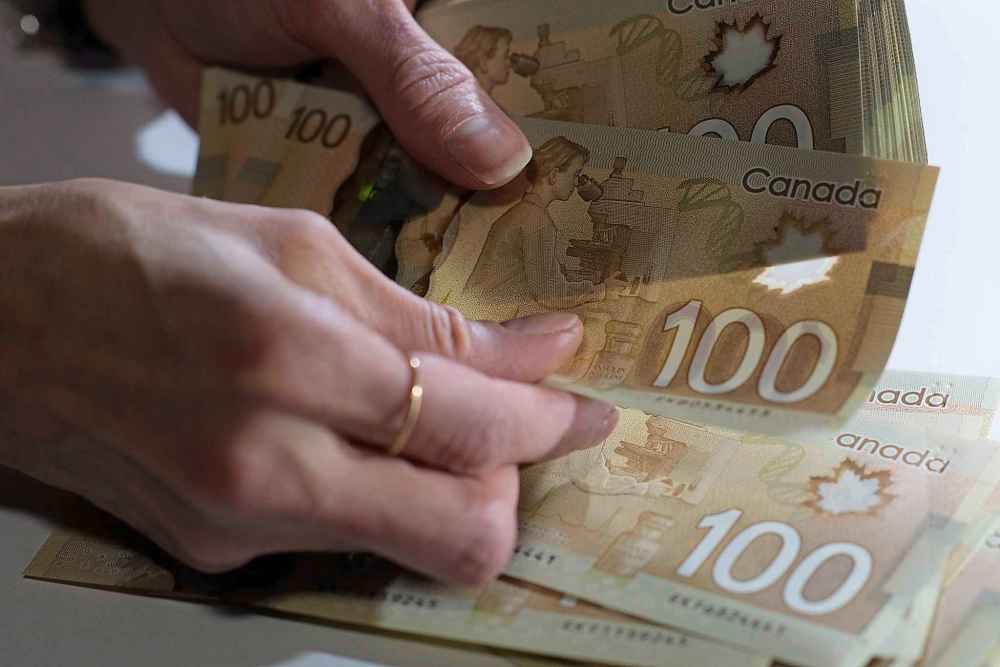
“It’s clear that under the current system, Canadian businesses are disadvantaged because they must collect and remit the GST, so Canadians benefit by purchasing from foreign vendors,” said Philippe Le Goff, who led one of five audits released Tuesday.
Le Goff would not say what online firms are involved in the purchases in which provinces might be short-changed on tax revenue.
“We did not look at any specific businesses involved in e-commerce because we think this is a systemic issue,” Le Goff told reporters.
The auditor’s estimate of $169 million in lost GST revenue spans both commerce and subscription sites, which theoretically could include streaming services, online shopping and ride-hailing.
Meanwhile, the lack of accounting for PST surrounds a program for collecting levies on low-value shipments to Canada, meaning those worth under $2,500.
Tuesday’s audit noted the CBSA could not determine whether it had collected the right amount of provincial sales taxes for products bound for four provinces, including Manitoba.
In fact, Manitoba could be missing out due to a bureaucratic split between tax rates. Manitoba collects its PST separate from the federal GST, but when a product from abroad arrives in Canada to a province that adheres to Ottawa’s HST framework, such as Ontario, and then is sent to a home in a PST province such as Manitoba, the CBSA doesn’t collect the provincial tax, making it unclear if the PST actually reaches the province.
Conservative CRA critic Pat Kelly said he would be raising the issue with both agencies when they come to testify about the report.

“The border service is going to have answer fairly quickly. It’s just disappointing,” he said in an interview.
While auditors didn’t estimate how much revenue is pegged to each province, Le Goff said “dozens of millions of dollars” are likely earmarked for Manitoba each year, and it’s unclear what proportion actually made it to the province’s coffers.
The report suggests the CBSA relied on the good faith of courier companies to declare and remit the sales taxes they collected from consumers, despite indications courier companies did not declare the full taxes owing to the government.
In spite of that, officials did nothing to resolve the issue, the report said.
Le Goff refused to name any of the courier companies apparently ripping off the tax system.
“We are bound by confidentiality; this is commercial information,” he told reporters.
Kelly wondered why the CBSA wasn’t taking action.
“I think that’s always going to be unacceptable to any Canadian who does follow the rules. E-commerce is a growing area of activity but it’s not brand new… It’s a large business and it’s growing,” he said.
The CBSA has said it will refine its tax-collection protocols later this year in lockstep with a global working group that concludes in September.

Yet the auditors noted Canada is not following 2017 recommendations from the Organisation for Economic Co-operation and Development, a group spanning most developed countries. The OECD suggested Canada set up a simple registry for foreign firms to collect and remit federal and provincial taxes.
A Liberal-majority House committee made the same recommendation a year ago.
The federal government wrote Tuesday that the CRA has taken appropriate first steps to address the issue, which includes educating taxpayers of their GST/HST obligations and conducting test audits.
Cabinet did not promise any changes to CBSA protocol nor tax collection from firms based abroad. Finance Minister Bill Morneau has said he’s awaiting a OECD report on how countries ought to tax online giants writ large, so Canada is in line with other countries.
dylan.robertson@freepress.mb.ca

